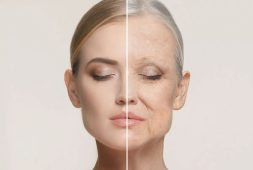
Studies have been conducted by experts and they found that biological aging in men is closely linked to both physical and mental health. This study has become a part of a special issue of eLife about longevity. And according to research, certain factors play an integral role. These include being male, smoking, being physically heavy, and experiencing depression.
As the researchers delved into the studies, they came up with this conclusion: depression is linked to earlier biological aging. They combined aging measures from multiple cellular levels to get a more specific answer. The biological age is more closely linked to this than a man’s chronological age. Hence, health is apparently key to a longer life.
What do we mean my chronological age? When we talk about this, we are referring to the yearly birthday celebration. Still, some scientists have noticed that those who share the same chronological age may not actually age the same rate when you look closer. Hence, they decided that biology is actually a more accurate measure on how quickly people age.
Several factors come into play. One of which is the length of an individual’s telomeres. These stretches of DNA and proteins found at the ends of chromosomes shorten as we get older. These scientists also make use of an epigenetic clock. This looks at the changes that take place in gene function. They’ve done this without making changes to the human genome, or the genetic code.
There’s also another aging clock. This one is based on transcriptomes, which is a collection of all the gene readouts found in a cell. These aren’t just the materials and equipment used. Scientists behind the study use several ways to measure age. They also take metabolomics into consideration. This is the study of the chemical activities that involve metabolites, the small molecules produced during the metabolic processes in the body. Moreover, they also have the proteomic clock that measures the levels of proteins found in the blood.
For this latest study that has been published in the journal, the researchers wanted to see and examine whether or not a composite biological clock outperforms individual biological clocks when it comes to predicting the person’s health.
Dr. Rick Jansen, the co-lead of author of the journal and an assistant professor in the department of psychiatry of Amsterdam UMC in the Netherlands, says, “To develop a better understanding of the mechanisms underlying biological aging, we wanted to examine how indicators of biological aging relate to each other, how they link to determinants of physical and mental health, and whether a combined biological clock, made up of all age indicators, is a better predictor of health.”
A Closer Look at Biological Aging Indicators
The researchers collected blood samples from 2,981 individuals between the ages of 18 to 65 years old. These were the men and women who volunteered to be a part of the Netherlands Study of Depression and Anxiety. Out of all the participants in the study, scientists found that 74 percent were diagnosed with a depressive disorder, an anxiety disorder, or both, while 26 percent were control participants who were deemed to be physically healthy.
The volunteers were men and women who were enlisted from different medical facilities and the general population between September 2004 and February 2007. Then, the team behind the study employed computer modeling to examine whether five measures of biological aging — telomere length and the epigenetic, transcriptomic, proteomic, and metabolomic clocks — were connected and analogous with both a person’s mental and physical health.
Then, the experts behind it gathered the five indicators all together and incorporated all these to make an analysis that also included other factors such as included sex, lifestyle, physical ability, and present health conditions.
What Makes Men Age Quicker?
The scientists came up with a solid outcome. They discovered that being male also played a big role. Men are more prone to advanced biological aging. They discovered these from the four of the five biological clock measurements. The study has been consistent because in many places, women do actually live longer.
There were also other factors to advanced biological aging. Some of the more imperative components include: having a higher body mass index, smoking, and suffering from a metabolic syndrome. Depression is also another constituent; something that many suffer from.
Additionally, experts also noted a connection between medication use and aging. Unfortunately, this needs to be looked into further. They still are unsure on whether or not the aging process is connected to medicines or to its underlying illness.
All in all, the experts were able to infer that some biological clocks indicate an overlap, but most components of the study do track the different aspects. As they’ve declared in the journal, “This provides further support for the hypothesis that not one biological clock sufficiently captures the biological aging process and that not all clocks are under the control of one unitary aging process.”



